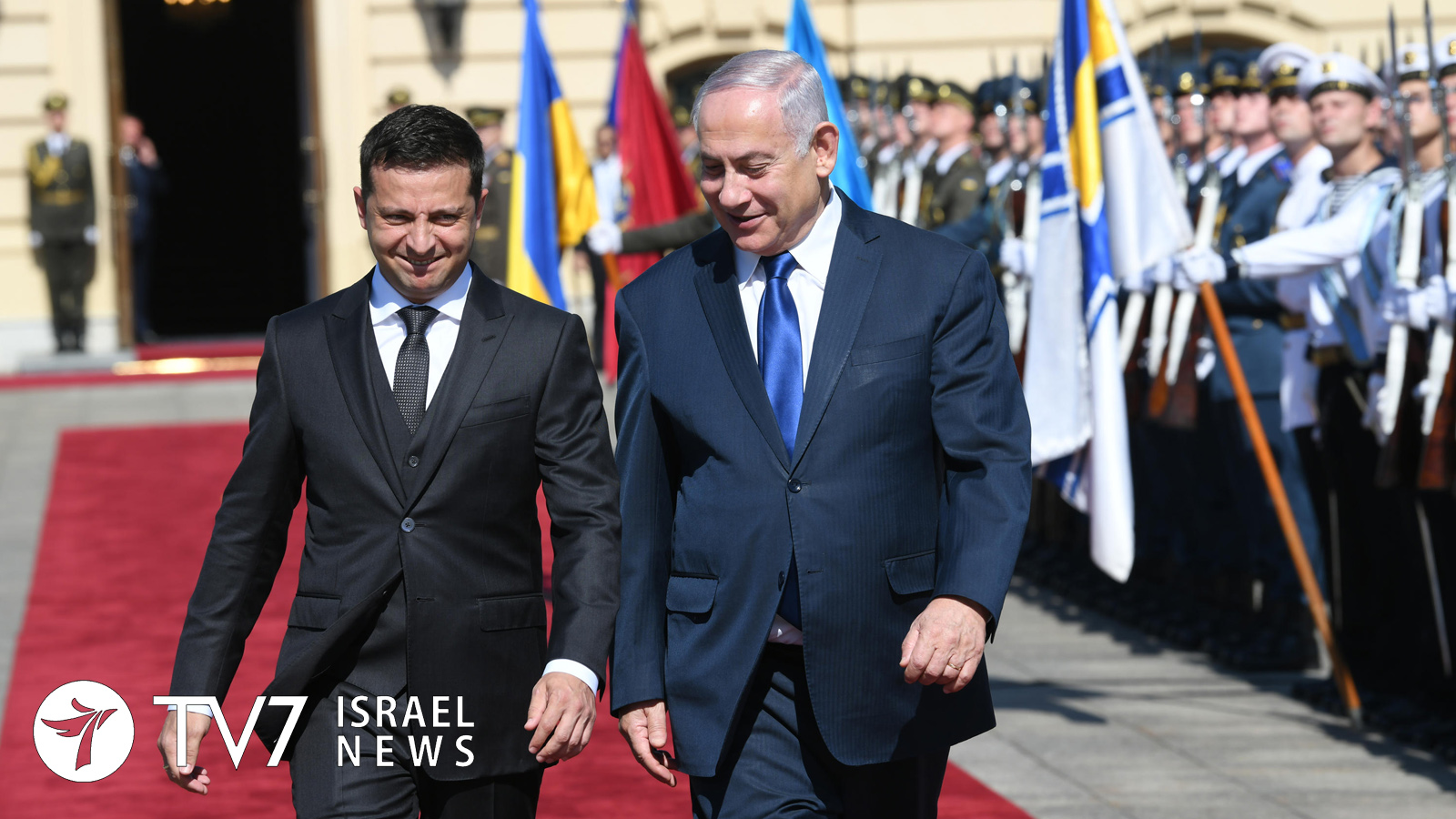Prime Minister Benjamin Netanyahu, who is on an official state visit to Ukraine, held a series of meetings with Ukrainian President Volodymyr Zelenskyy, during which the two leaders signed three separate agreements in the fields of agriculture, trade and education, amid increased efforts by Jerusalem and Kiev to bolster bilateral relations and expand economic cooperation.
During a joint press conference alongside President Zelenskyy, Prime Minister Netanyahu announced that an agreement was reached to immediately start working on an expanded free trade agreement that will primarily focus on reciprocal investments in the field of hi-tech.
According to Netanyahu: “To seize the future, we’ve made two decisions in this visit that I think can accelerate the seizing of these opportunities. The first is to immediately start working on the free trade agreement, which will be ratified right after our elections in our parliament, but to expand it to include investments. That means investments and services. There’s another word for that, hi-tech. The second is to open both in Kiev and in Jerusalem hi-tech development offices. What we would like to see is not merely the exchange of technology and the involvement of Ukrainians in our hi-tech industries. We’d like to see Israeli hi-tech investments, joint mutual investments here in the Ukraine. Not only do we not mind this, we encourage this. And I think these two measures of the expanded free trade agreement and the opening of these offices in our respective capitals, I think will advance that very, very quickly.”
Later in the day, Zelenskyy and Netanyahu visited the Babi Yar ravine in Kiev, the location of the second biggest single massacre of the Holocaust during World War II, by occupying Nazi soldiers and their local sympathizers. More than 33,000 Jewish men, women and children were reportedly murdered at the site, separately from other documented massacres of Soviet prisoners of war, communists, Ukrainian nationalists and Roma Gypsies, with an estimate of between 100 and 150 thousand victims during the entire duration of the Nazi occupation.
Following a wreath laying ceremony, President Zelenskyy asserted that “The memory of the victims should serve as a warning that an ideology of intolerance and violence deprives of the most precious and the most valuable thing which is a human life. Today, here in the Babyn Yar, we urge the international community to join efforts to prevent any signs of antisemitism and intolerance based on race or nationality.”
Prime Minister Netanyahu, for his part, reiterated that the State of Israel’s main objective is to prevent a repetition of the dark past of the Holocaust.
“The Jewish State will fight for its survival against any oppressor,” he said, stating, underscoring, “We will always defend our lives regardless of anything and anyone,” in the “fight to prevent the repetition of Babi Yar,” which he called an “awful tragedy for humankind.”
